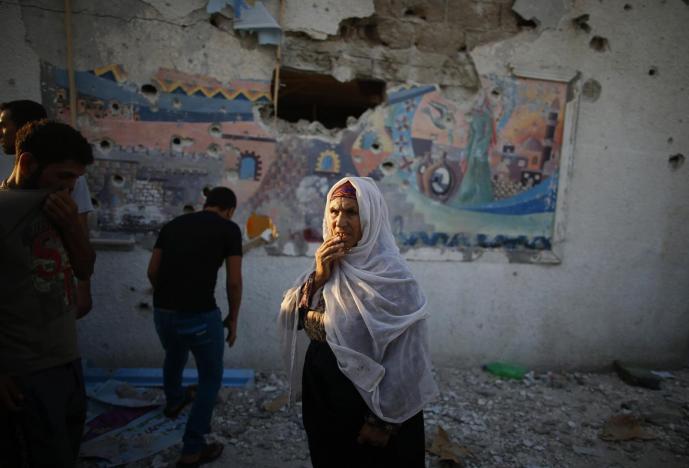Gaza – The Palestinian Hamas movement wants to usher in a new political era to overcome the regional challenges that began affecting it when its exiled leadership left Damascus in 2011.
Hamas, which has run the Gaza Strip since June 2007, has in the past years been in a state of political and economic deadlock. It has been under international and Arab siege, its allies have distanced themselves from it and it has faced the burden of Gaza’s reconstruction alone.
New Charter
This status quo has compelled the movement to seek an alternative, including preparing for elections to replace the head of its politburo and drafting a new platform to present a more pragmatic face to the world.
Informed sources told Asharq Al-Awsat that the new document would accept borders of the territory captured by Israel in the 1967 war as the basis for a Palestinian state. However, it would not recognize Israel.
This represents a drastic change in Hamas’ policies, which had always insisted on the establishment of a sovereign Palestinian state on all occupied territories – from Naqoura (south Lebanon) to Rafah (on Egypt’s border).
Hamas official Ismail Radwan stressed that when the document is adopted, the movement will never give up its national principles that Palestine is for the Palestinian people and Jerusalem is their capital.
Palestinian political analyst Talal Awkal told Asharq Al-Awsat that through its charter, Hamas will propose to the region and international community a strong political platform that would likely be welcomed by Egypt and other Arab countries.
Egypt as an Objective
Hamas has lately been working on improving relations with Egypt, which has always been accused by the movement of tightening the noose on the Gaza Strip.
According to available information, Hamas has been able to reach several security agreements with Egypt through the visit of a high-ranking delegation to Cairo. The deals, which include combatting radicals that support ISIS and controlling the border to stop the infiltration of gunmen, come as part of an Egyptian policy of openness towards Hamas and other Palestinian factions in Gaza.
Another factor that would contribute to improved relations is the new Hamas document’s alleged declaration that the group is not a part of the Muslim Brotherhood, which is under increasing pressure by Egyptian authorities.
Ismail Haniya, who is considered a supporter of a relatively moderate element in Hamas and seen by many observers as the most likely successor to the movement’s overall leader Khaled Meshaal, will largely contribute to the rapprochement with Egypt, said writer and political analyst Akram Atallah.
Egypt prefers to deal with a Hamas leader from Gaza, Atallah told Asharq Al-Awsat. Meshaal currently lives in exile.
Ties with Iran
Hamas has also an objective of improving relations with Iran through its new politburo, observers said.
Yahya Sinwar, who was elected the new leader of Hamas in the Gaza Strip, is expected to play a major role in such an improvement, they said.
Being a top commander in the movement’s armed wing, he is expected to seek for renewed Iranian financial assistance.
According to Awkal, Hamas’ top priority will also include attempts to have better relations with Lebanon’s “Hezbollah,” which is backed by Iran.
Ties with Palestinian Authority and Israel
Since controlling Gaza in 2007, all reconciliation attempts with the Palestinian Authority have failed. The movement has also clashed with Israel in four wars.
According to Awkal, the main obstacle to reconciliation is the fact that PA is committed to the Oslo agreements while the resistance holds onto its own program and arsenal, which contradicts with the Palestinian Authority’s commitments.
Atallah also said that the conflict with Israel will not witness any changes despite beliefs that it would become more violent now that Sinwar is the new Hamas leader in Gaza.
Hamas continues to hold onto its strategy of confronting any new Israeli aggression amid continued threats by the Jewish state’s leaders that they would launch a new war on Gaza to stop rocket attacks from the territory, Atallah added.
